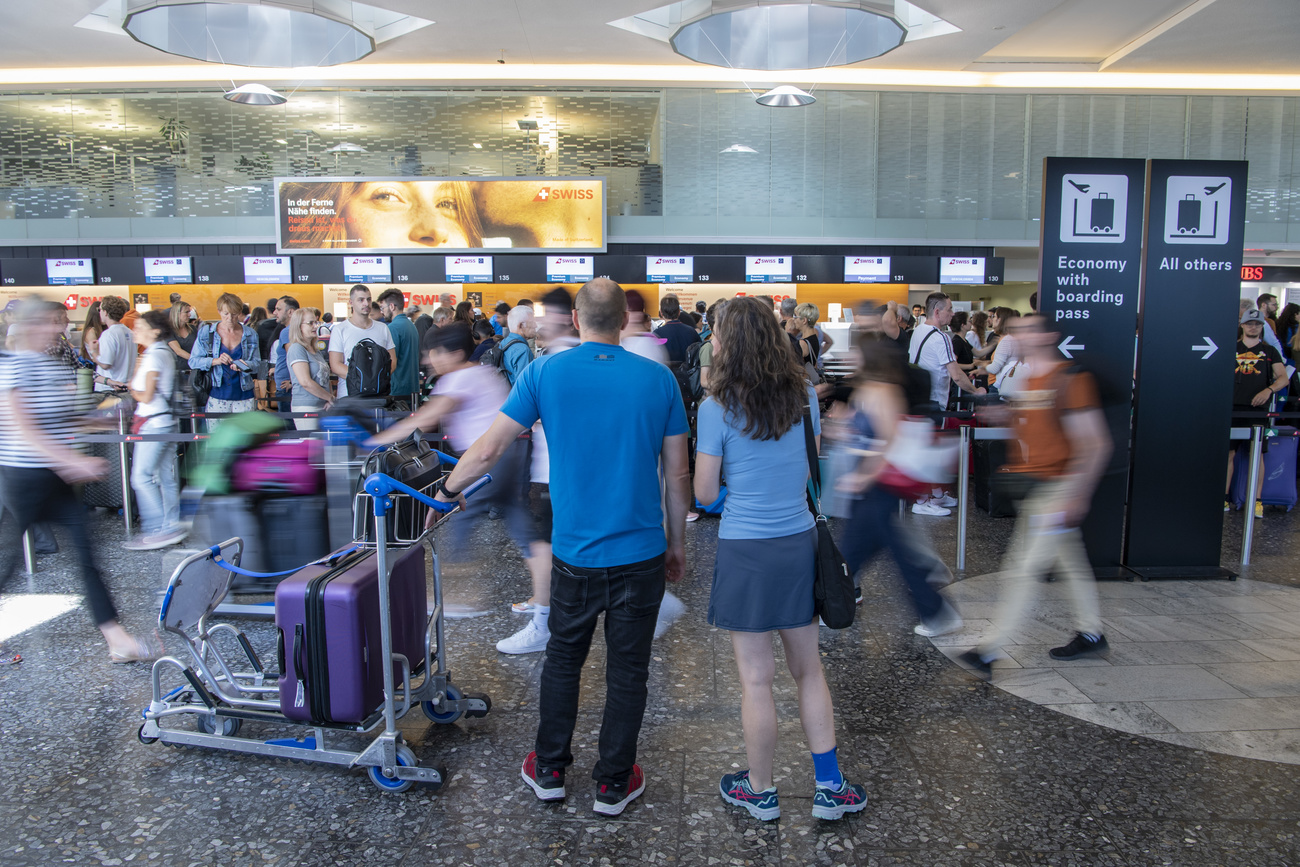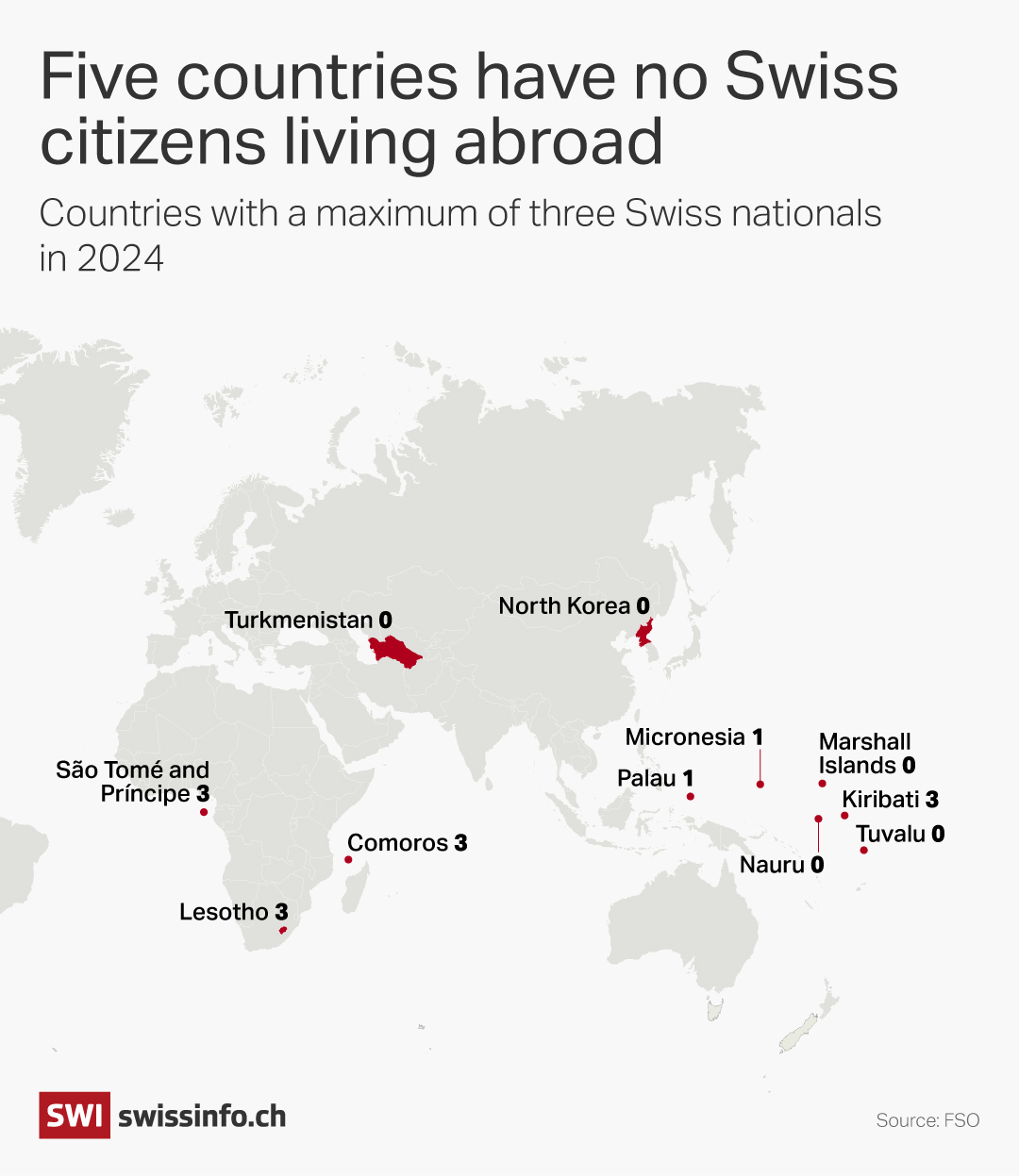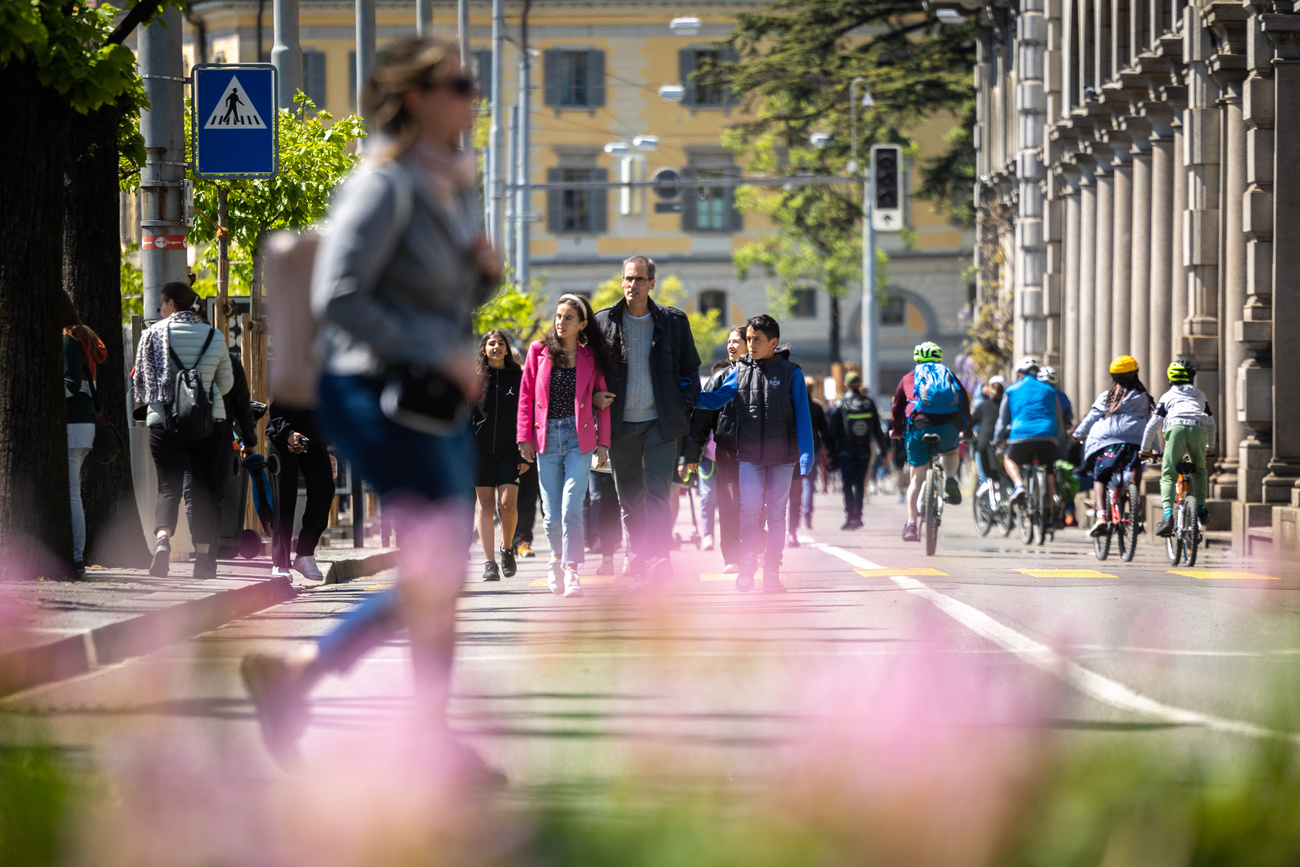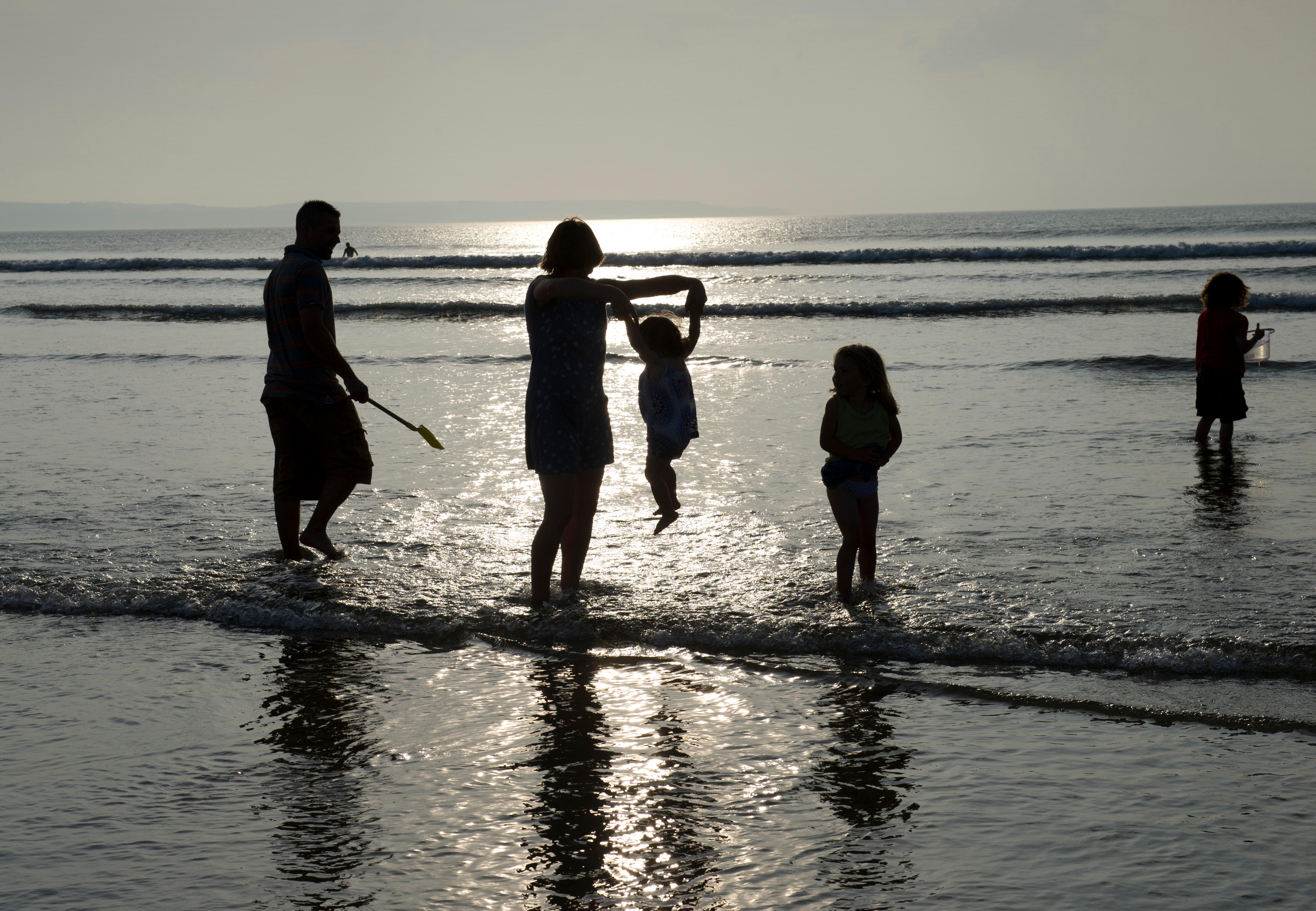You won’t find any Swiss in these countries

Swiss nationals are spread all over the world. Only five countries currently have no Swiss Abroad - at least officially.
The Federal Statistical Office (FSO) has published the latest figures on Swiss Abroad populationExternal link. These confirm the trend of recent years: more and more Swiss nationals – in all age groups – are living abroad. Compared to 2023, the proportion of Swiss nationals living abroad increased by 13,300 people (+1.6%).

With the exception of 2017, the population of Swiss expats has increased continuously since 2002, rising from 598,000 in 2002 to 826,700 Swiss abroad in 2024.
With this population, the diaspora would theoretically remain the fourth-largest canton in Switzerland behind the cantons of Zurich, Bern and Vaud.
>>> Find out more about the development and composition of the Swiss Abroad:

More
The Swiss Abroad in nine charts
Switzerland – a nation of emigrants? Indeed: Swiss citizens have settled in 192 of the 197 countries listed in the statistics worldwide. Only five nations currently have no Swiss citizens living abroad – at least officially. This is according to the latest statistics from the FSO.
The statistics include Swiss nationals who are not resident in Switzerland and have registered in the Register of the Swiss Abroad with the relevant representation of the respective country in accordance with the Swiss Abroad Act. Swiss nationals who work abroad for the Federal Department of Foreign Affairs (FDFA) – such as diplomats or consular staff – also fall into this category.
Where the Swiss Abroad have never gained a foothold
There is only one country which has never welcomed Swiss nationals in the last 31 years since FSO began collecting this data: the small island state of Nauru in the Pacific Ocean located north-east of Australia.

About 14,473 kilometres from the federal capital of Bern, Nauru is the third smallest country in the world at just 21 square kilometres. The island, which today has around 12,000 inhabitants, was considered the richest country in the world in the 1970s because it was able to profit from the sale of its natural phosphate resources. Today, the phosphate deposits are exhausted and Nauru is now one of the poorest countries in the world. The country also hit the headlines because Australia ran a refugee camp on the island and because Nauru has one of the highest diabetes rates in the world.
No Swiss have lived here for a long time
No Swiss nationals have lived in Tuvalu – another island state in the Pacific Ocean with just under 10,000 inhabitants – since 2003. Between 1995 and 2002, however, the fourth smallest country in the world was home to a single Swiss.

No Swiss person has been registered in Turkmenistan since 2016. The nation is located in Central Asia and borders the Caspian Sea, Iran, Afghanistan, Uzbekistan and Kazakhstan. At one point in 2010, eight Swiss citizens were living in the authoritarian state, which is known for its natural gas reserves. The Swiss Agency for Development and Cooperation (SDC) has never had an office in the country.
The pandemic caused an exodus
Until the outbreak of the Covid-19 pandemic in 2020, a few Swiss nationals were registered at the relevant representations in the Marshall Islands, Palau and North Korea.
Until 2020, one or sometimes two Swiss nationals abroad lived in the Marshall Islands. The republic is located roughly halfway between Hawaii and the Philippines in the Pacific Ocean. No Swiss nationals have returned to the island since 2021.
Not so on Palau. At the end of 2020, the three Swiss nationals left the island state in the Pacific Ocean. We were able to contact them.
“After a coronavirus-induced ‘escape’ from Australia and later from Ghana, we are now in Switzerland,” writes marine biologist Vanessa Jaiteh at the request of SWI swissinfo.ch. Our email reached Jaiteh when she was on holiday in Palau.
“We wanted to show our children their first home,” writes Jaiteh. But otherwise she and her family now live in the Bernese Oberland, ‘with a view of Lake Thun’.
Palau now has a Swiss national again – the first since 2023. Jaiteh does not know who this could be. “I haven’t been told by friends that there are other Swiss nationals living here,” she says.
Withdrawal of the SDC from North Korea
No Swiss nationals have been included in the statistics on the Swiss Abroad in North Korea since 2022. Previously, some Swiss citizens had always been registered in the totalitarian state since the data was collected. Switzerland has been active in the Democratic People’s Republic of Korea since 1995, as can be seen on the SDC website.
The SDC’s involvement in North Korea began with humanitarian aid for the population affected by the severe famine in the 1990s. Since then, Switzerland has, for example, supplied powdered milk to the UN World Food Programme in North Korea.
The closure of the SDC’s cooperation office in the capital Pyongyang ultimately led to the final exodus of Swiss aid workers for the time being following the outbreak of the coronavirus pandemic. Switzerland suspended its project activities in the country after North Korea closed its borders due to the pandemic. Entry to the country has not been permitted since March 2020 anyway. “A decision on the further course of Swiss activities in North Korea will be made after SDC employees are allowed to enter the country again,” writes the SDC on its website.
Only one Swiss person lives here
A look at the statistics on the Swiss Abroad shows that Swiss nationals can always find their home far away. For example, only one Swiss national lives in the Federated States of Micronesia. The only Swiss Abroad on Yap – one of four island states in the western Pacific – has already been reported on several times. According to the Tages-AnzeigerExternal link, Fredy Gull has lived on the island for over 20 years. The 79-year-old brews beer for tourists there and, despite the distance of 12,951 kilometres to Switzerland, still knows a lot about his homeland.
Edited by Balz Rigendinger. Adapted from German by DeepL/ac

In compliance with the JTI standards
More: SWI swissinfo.ch certified by the Journalism Trust Initiative












You can find an overview of ongoing debates with our journalists here . Please join us!
If you want to start a conversation about a topic raised in this article or want to report factual errors, email us at english@swissinfo.ch.